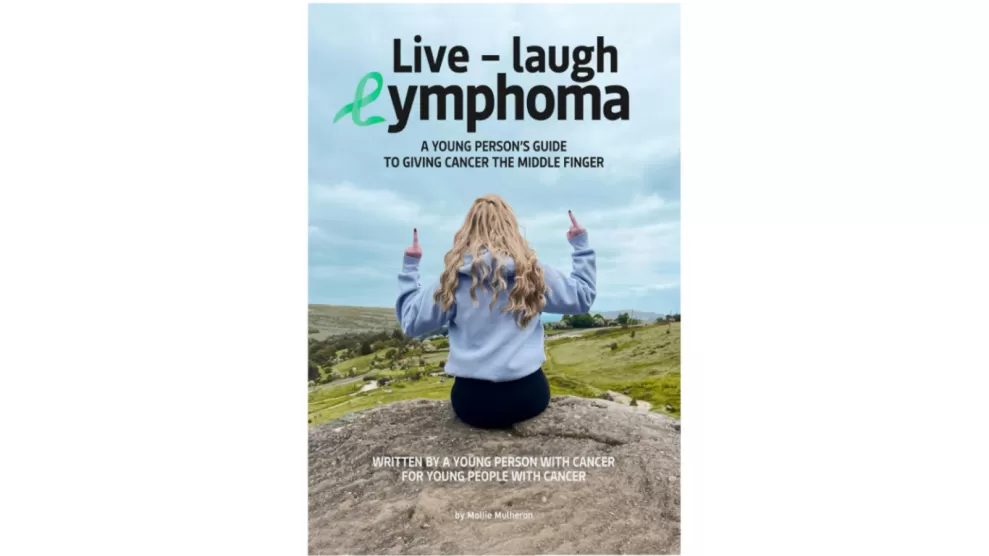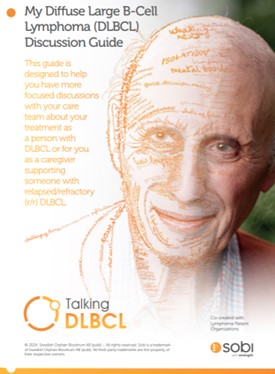Diagnose Diffuse Large B-Cell Lymphoma
Mollie shares her story of being diagnosed with cancer at 24
Unexpected symptoms far from home
Mollie is 26 years old and lives in Blackburn, UK. She is a language teacher, passionate about Spanish and German. In early 2023, while teaching languages in the Galapagos Islands, Mollie began experiencing unusual symptoms - breathlessness, fatigue, chest pain, and intensely itchy skin. At first, doctors believed it was anxiety or even a muscle strain. But Mollie knew something wasn’t right.
“I just couldn’t catch my breath, even while talking. I was exhausted all the time, falling asleep at work,” recalls Mollie. Despite her concerns, doctors initially dismissed her symptoms. An X-ray done in December came back clear. But just weeks later, upon returning to the UK and collapsing after her flight, a second X-ray revealed a melon-sized tumour surrounding her heart. Mollie was diagnosed with stage 4 Diffuse Large B-Cell Lymphoma (DLBCL) - an aggressive form of blood cancer.
The shock of diagnosis and sudden life changes
Being diagnosed with cancer at 24 was an overwhelming and life-altering experience. “One day I was living in paradise, the next I was being told I had cancer. Everything changed overnight,” says Mollie.
She was admitted to a cancer clinic for young adults, where she spent 125 days undergoing treatment. Her mother stayed by her side the entire time, often sleeping on the hospital floor. Mollie experienced profound mental health struggles, including depression and loss of purpose. “I’m usually a go-getter. But I felt like I had no purpose anymore - just lying in a hospital bed, not knowing if I would survive.”

Mollies book about her journey with a lot of practical tips for other patients
Like many young cancer patients, Mollie found the healthcare system geared toward older patients. She felt there was little support for the emotional and psychological challenges faced by young adults.
To cope, she began writing a book - a guide for young people diagnosed with cancer — now available in young adult cancer wards across the UK and on amazon.
Being diagnosed with cancer at 24 was an overwhelming and life-altering experience. “One day I was living in paradise, the next I was being told I had cancer. Everything changed overnight,” says Mollie.
Navigating treatment and side effects
Mollie faced rapid treatment decisions, including fertility preservation. “I didn’t have time for egg freezing, but I chose an injection that temporarily put me into menopause - thankfully, it worked.”
She also found communication with healthcare providers challenging. Some used complex medical terms, making it difficult to understand her condition and treatment plan. Her clinical nurse specialist (CNS) became a vital support, answering questions and translating information into language she could understand. Even after treatment, Mollie was left with lasting side effects: chronic fatigue, a compromised immune system, and health anxiety. “I wasn’t told what the long-term effects would be. I had to figure it out myself - things like not being able to return to teaching because of my immune system.”
Living with late effects and finding purpose
Mollie just opened her own language school that offers more flexibility than teaching at school: “I’m trying to find the balance between living life to the full and building a future I know I still have.”
To cope with her anxiety and emotional recovery, Mollie sought therapy and support from cancer organisations. “There’s help out there - you just have to find it. And it’s okay to ask for it.” One unexpected source of comfort was her therapy dog Dora, a labradoodle she got during treatment. “She lifted my spirits and brought joy when I needed it most.”
Words of advice for others
Mollie now feels stronger and more resilient than before. “Cancer made me realise how strong I really am. I feel like a better version of myself.” Her advice to others: “Don’t panic when you hear the word cancer - every case is different, and most are treatable. Make lists of questions, don’t feel guilty about asking your doctor anything, and please - don’t Google. And if you can, get a puppy!”
Talking DLBCL – see Mollies full Story here
Sobi would like to thank Mollie for supporting the development of this story.
Sobi’s DLBCL Right Words Campaign
DLBCL can sometimes return, and learning that previous treatments haven’t worked - or that the cancer has come back - can be overwhelming for both patients and their carers. That’s why Sobi, in collaboration with patients and carers, has developed educational materials designed to:
- Inform, support, and empower those affected by relapsed/refractory DLBCL.
- These resources aim to help patients reflect on their treatment needs and prioritise their healthcare goals.
- Prepare for meaningful conversations with their healthcare providers about the next steps in their care journey.

Diffuse large B-cell lymphoma (DLBCL)
We are a global biopharma company unlocking the potential of breakthrough innovations, transforming everyday life for people living with rare diseases.
Our therapies are concentrated within the areas of Haematology, Immunology and Specialty Care.
We contribute to societies by improving access to treatment of rare diseases.
Every day, we work actively to find better ways to understand and meet patient needs.
Find out more about our business and financial performance.
Here we present our most recent press releases, news articles, and images.
- About
- Therapeutic areas
- Medicines
- Stories
- Sustainability
- Careers
- Investors
- Media
- English
- Swedish